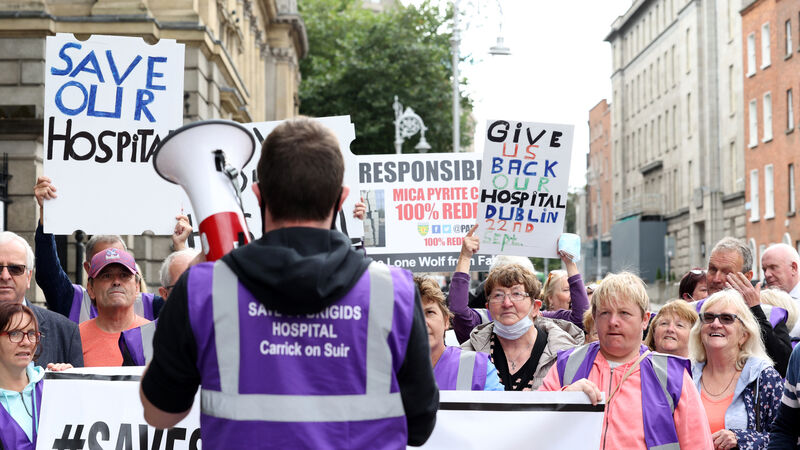Irish Examiner View: It’s time to support the forgotten frontline

Activists from Carrick-on-Suir demonstrate outside Leinster House last September to save the St Brigid’s Hospital, Tipperary, to protest the closure of respite and palliative care services. Picture: Sam Boal/RollingNews.ie
It can be difficult to see how the seemingly remote workings of Government affect our everyday lives. A word like ‘legislation’, for instance, conjures up an image of something that is remote, formal, and legalistic, yet its reach is felt in the very grain of our daily experience.
We have seen that, again and again, as the pandemic laid bare the cracks in Government policy, or highlighted the lack of it. Nowhere was that more evident than in the care sector, where families are at breaking point because of a lack of access to respite care.













